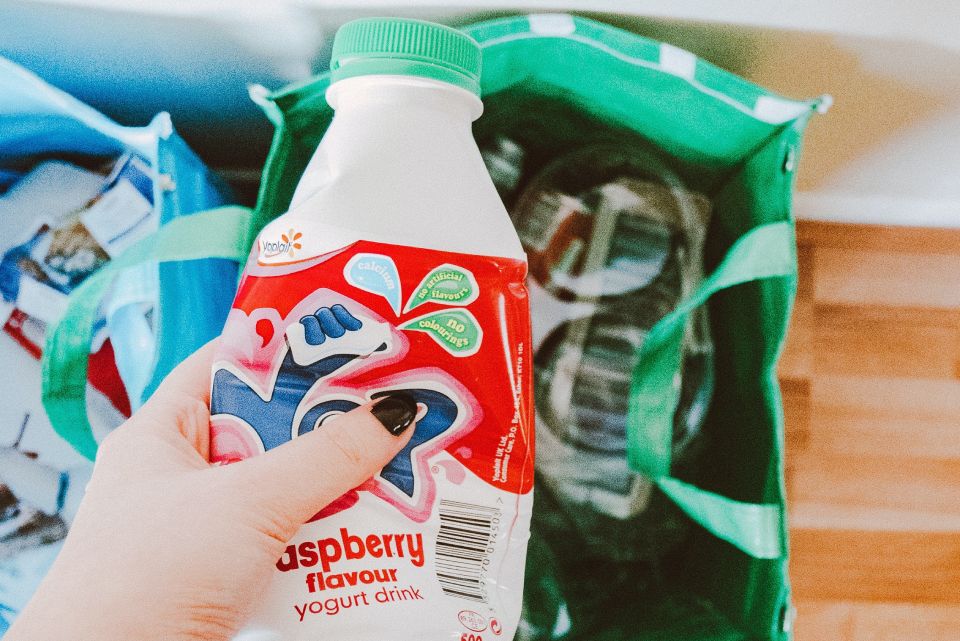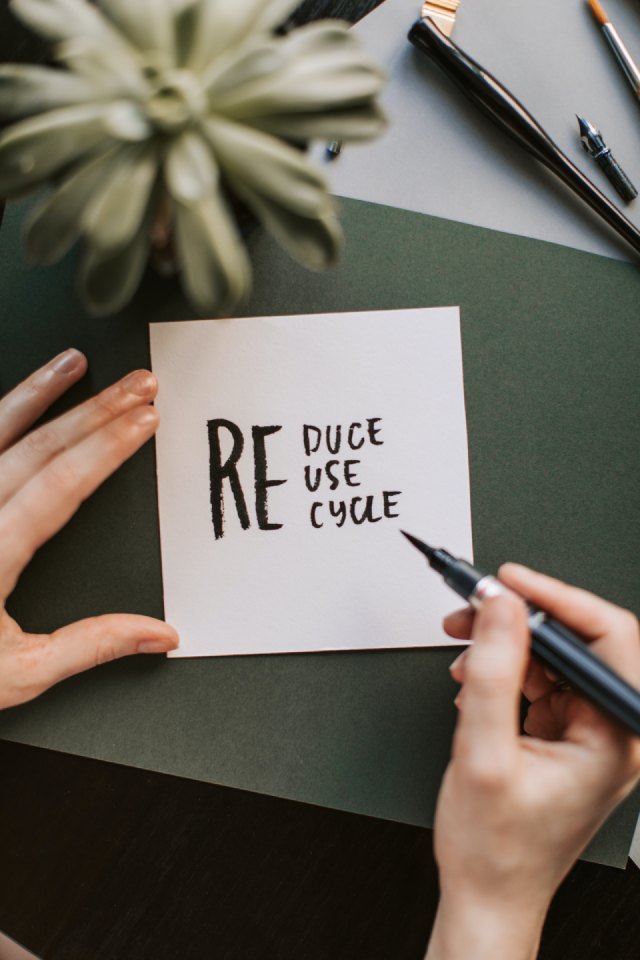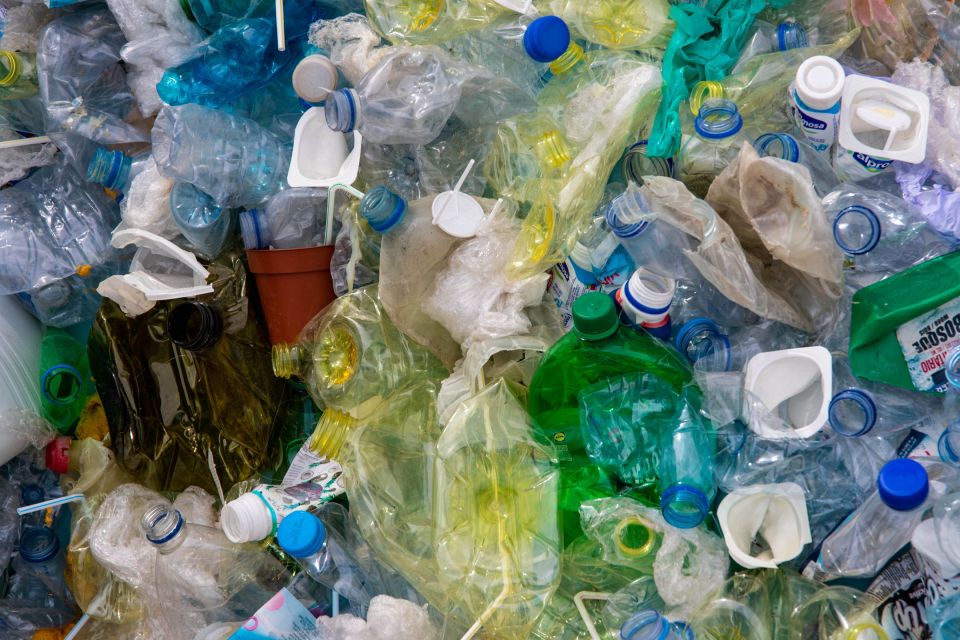In a world beset by a climate crisis, recycling is one low-stakes activity that can make us feel like we’re making a difference. Let’s look at some of the most common waste and recycling myths to remind us why the Global Recycling Day mid-March is is so important.
Yes, recycling is yet to be a perfect process, but we owe it to our planet to adopt the best available solutions and continue to develop more effective ones.
In our fight against climate change, recycling is a crucial solution to reduce the amount of waste being deposited in a landfill. Therefore it’s important that we are informed of how we can best play our part and recycle in the most efficient way possible.
So, whether you’re a happy-go-lucky ‘wish-cycler’ – tossing waste in the hope it can be recycled – or routinely plagued by different diameters of plastic wrapping, here Ecoveritas shed some light on common recycling myths.
You have to clean empties for them to be recycled properly
True (sort of)
Where possible, you should at least rinse items, getting them as clean as possible, before sticking them in the recycling.
It’s difficult to say exactly how to clean materials must be before they’re recycled. Use the water from the washing up or pop them into the dishwasher if there’s space.
Not washing your recycling risks ruining everything and diverting the recycling load – not just yours – to a landfill.
Why? – Food residue left on containers cannot be reliably processed. Contamination occurs when the wrong materials are put into the system or when the right materials are prepared incorrectly. If contamination levels are too high when a recycling load arrives at the facility, it might have to be rejected. If this is the case, the whole load is sent to be burnt for energy or landfill.
Receipts are recyclable
False
We crumple them, shove them in coat pockets and find them forgotten in shopping bags every day – the humble receipt may not seem like a big problem, but paper receipts should probably be banned to stop them from heading to landfill.
It turns out there are two types of receipts floating around out there. If your city has an organics program, the paper ones are recyclable and compostable, and the thermal ones aren’t. But because it’s hard to tell the difference between the two, we recommend keeping them all out of the recycling bin.
That’s because 93% of thermal receipts contain Bisphenol A (BPA), an industrial chemical that produces specific kinds of plastic. The UK still hands out 11 billion receipts every year, and around 50 per cent of these – printed on shiny, thermal paper – are not recyclable.
Luckily, a slow transition to emailing digital receipts is underway, and increasingly customers are given the choice of whether to take a receipt.
Putting non-recyclables in the recycling bin will contaminate everything
True
The rhyme “if in doubt, leave it out” has got things right. The introduction of mixed recycling gripped us with a free-wheeling, hope-for-the-best attitude towards tossing empties into the recycling.
If it’s going to be sorted anyway, it doesn’t hurt. Wrong. You risk contaminating the whole load if you put the wrong things in your recycling. This might mean all the materials are sent for disposal instead of recycling, or the quality of the recyclable materials produced is lower. So, if in doubt, leave it out!
The following items cannot be recycled using your kerbside recycling bin:
- glass cookware such as Pyrex ®, drinking glasses or window glass
- containers or bottles with liquids still in them
- items contaminated with excessive amounts of food or grease, such as used, very greasy, pizza boxes
- sanitary items, such as nappies
- tissues, wet wipes, and makeup pads
- paper stained with grease, paint or dirt
- sticky paper such as Post-It ® notes, sticky labels or masking tape
- wall and decoration paper
- crisp packets and sweet wrappers
- laminated foil pouches
- greeting cards with glitter or other decorations on them
Over half a million tonnes of recycling is rejected annually due to contamination
Aerosol cans can’t be recycled
False
You can recycle aerosols with your mixed recycling. According to Recycle Now, if everyone in the UK recycled one empty can of air freshener, enough energy would be saved to power 273,000 TVs for a year! But make sure you follow these tips first:
Do:
- spray any leftover liquid into a rag until nothing else comes out
- remove any easily removable parts (like the lid) and dispose of them with the aerosol
- throw any attached plastic straws into general waste
The most important thing is to make sure aerosols are empty. Aerosol cans with anything left inside are still pressurised, meaning they could explode or combust if punctured or crushed.
Don’t:
- pierce, crush or flatten the can
- remove the nozzle
- recycle a can that still contains any substance
Recycling your aerosols saves valuable metals that can be recycled infinite times without losing quality.
You need to remove the plastic tape from the packaging
True
With more and more of us defaulting to buying online rather than on the high street, much more packaging is moving through the system.
Although cardboard boxes are fully recyclable, sticky tape is not and should be thrown away in your rubbish bin.
Where possible, try to remove all loose strands of sticky tape from cardboard boxes and wrapping paper before you recycle them.
Leaving the adhesive tape on your boxes could make them contaminated and sent to a landfill rather than a recycling centre.
Wrapping paper is recyclable
Sometimes
Consumers in the UK use 227,000 miles of wrapping paper each year, and over 83km2 of this ends up in bins. The Department for Environment, Food and Rural Affairs estimate that the paper used yearly is enough to wrap the island of Guernsey.
Even worse, a great deal of this paper cannot be recycled as it contains plastic (glitter or laminates).
But the good news is that there are plenty of choices regarding eco-friendly options. Many retailers have made their wrapping paper recyclable; newspaper and brown paper are easy to recycle, and natural twine is much better than non-recyclable sticky tape.
The triangle icon means that something is recyclable
False
This is one of many common recycling misconceptions. The Green Dot logo shows that a company has joined the scheme. The producer will have made a financial contribution towards the recovery and recycling of packaging in Europe.
We’ve all scoured an item for some indication of whether it’s recyclable or not, only to heave a sigh of relief upon encountering the small green circle icon with interlocking arrows. However, we’re here to shatter your blissful ignorance and tell you that this devious little symbol – known as ‘the green dot‘ – is misleading you. This doesn’t mean the item is recyclable; it means that the company in question has financially contributed towards the recovery and recycling of packaging in Europe. To be sure an item is recyclable, it must explicitly state that this is the case.
It doesn’t necessarily mean that the packaging is recycled or can be recycled.
Broken glass can be recycled
It depends
Broken glass can sometimes be recycled, but councils often won’t accept it in a kerbside bin, as it risks injuring workers.
You might need to take it to a bottle bank or local recycling centre.
You should check your local council’s website to find out how they recommend disposing of broken glass.
It is worth noting that the following types of glass also cannot be recycled:
- Glass panes
- Toughened glass panes
- Mirrors
- Light bulbs or fluorescent tubes
The above must be placed in your regular waste bin, or take large pieces of broken glass to your nearest Household Recycling Centre.
I can’t recycle all my recycling as there isn’t enough space in my recycling bin
False
On collection day, you can put extra recycling alongside your main recycling bins or bags. It’s normally best to use transparent boxes, bags or spare recycling containers. Check with your local council for details.
Large cardboard items are normally collected if flattened and laid alongside your recycling bin.
If you have a large family, contact your district or borough council to see if you qualify for an extra recycling bin.
You can’t recycle pizza boxes
You can – just not the greasy bits. If the box is greasy, tear the lid off and only recycle the clean bit. Before recycling the box, ensure you’ve scraped any leftover pizza into your food waste bin.
Cardboard that is covered in food or fats is deemed non-recyclable. Some cardboard that protects frozen/chilled food is plastic laminated, so it can’t be recycled at kerbside.
Plastic labelled as ‘compostable’ can be put in the recycle bin
False
Keep plastic products marketed as biodegradable or compostable from your recycling bin, as they can disrupt efforts to repurpose general plastics.
Moreover, these materials may not break down enough in household organic bins. So unless the label says the product is certified Home Compostable, it’s often best to put these items in general waste.
Soft plastic can’t be recycled
(Largely) False
Soft plastics are lightweight plastics that often cannot be placed in recycling bins at home.
This includes plastic shopping bags, yoghurt lids, and food wrappers.
Some types of soft plastic can be recycled at carrier bag collection points at the larger stores of major supermarkets such as Waitrose and Lidl.
Larger stores of major supermarkets accept:
- All plastic bags, except biodegradable or compostable bags
- Bread bags
- Breakfast cereal liners
- Bubble wrap
- Delivery bags
- Dry cleaning bags
- Frozen food bags
- Magazine and newspaper wrappers
- Multi-pack wrapping
- Plastic marked as low-density polyethene (LDPE) – resin ID code 4
- Toilet roll wrapping
Selected stores of major supermarkets also accept:
- Baby, pet food, detergent and cleaning pouches
- Biscuits and chocolate wrapping
- Cheese, fish and meat wrapping
- Cling film
- Crisp and sweet bags
- Plastic film lids
- Salad, pasta, and rice bags
Shredded paper can’t be recycled
True
This may seem counterintuitive, but shredded paper cannot always be recycled.
Many paper mills won’t accept it as shredded pieces are too small to be collected through the Materials Recycling Facility (MFR).
Paper towels and tissues are recyclable
False
The cardboard inner tube of kitchen rolls and boxes of tissues is widely collected as part of household recycling schemes.
However, kitchen rolls and tissues aren’t suitable for recycling. This is because kitchen rolls may be contaminated with food waste, classified as a contaminant.
Used sheets of kitchen roll should be placed in your rubbish bin unless your council tells you otherwise.
Some will allow you to put a small kitchen towel in the food waste bin – check with your local authority in the first instance.
Tissues can’t be recycled as they are made of very short fibres, which are not high enough quality to be recycled.
They will need to be disposed of in your waste bin.
Cleaning cloths and wet wipes are not recyclable
True
That blue-and-white (or sometimes green- or red-and-white) cleaning cloths are made of plastic, not paper, and so are wet wipes, and they cannot go in the recycling bin. Sometimes the material can feel like paper, but a good way to check if something is plastic is to try and tear it. Woven plastic like this won’t tear like paper.
The same applies to disposable masks: plastic and not recyclable!
These cleaning cloths are destined for the general waste bin. The best option is to try and find a truly compostable reusable alternative (those Swedish dishcloths are great) or even a plastic-free kitchen towel.
Takeaway coffee cups are recyclable
False (For household recycling)
Disposable coffee and paper drink cups are not currently accepted via household recycling collections. They should be placed in your general waste container unless specifically asked for by your local authority. However – Some coffee shop chains have introduced on-site recycling collection points for cups. Costa Coffee currently accepts any disposable takeaway cup via one of their 2,600+ stores. There is a national coffee cup recycling scheme and various other schemes in place across the UK. Starbucks collects millions of used paper coffee cups in their stores every year, turning them into a Starbucks Circular Cup.
All your recycling is recycled
False
We dream of this when we carefully clean and place our recycling into the assigned bin, but the reality is bittersweet. There is a drop-off at each stage of the recycling process in the UK.
For example, of all the recycling received, 60 per cent is forwarded to MRFs (mixed recovery facilities). Here, there is likely to be more waste siphoned off. What kind of sorting system is in place is also decisive. A kerbside system, where recycling operatives sort item by material, is more effective than a truly ‘commingled’ system where all the recycling reaches the facility mixed. However, if you’re recycling optimally, there is a good chance it will reach its final destination.
Plastic shopping and bin bags are not recyclable
True, if full
They are if they are empty via front of store collection points.
Due to safety reasons, bags aren’t often opened at recycling-sorting facilities. So, if your recycling is in a black bin bag, it will go to a landfill. Instead, use clear eco-friendly bags for your recyclables.
If you have plastic bags in the house, reuse them as often as possible when you shop or return them to supermarket recycling centres.
You can add hand soap pump dispensers to your recycling
Not true
Hand wash pumps and refill pouches cannot be recycled through traditional UK council recycling systems. Discard these with landfill refuse, then rinse and recycle the soap container.
However, Carex and recycling experts TerraCycle launched the Carex Recycling Programme, a free nationwide recycling programme for all brands of hand wash pumps and refill pouches.
You can’t recycle kitchen foil
(Largely) False
Two-thirds of respondents to The British Science Association survey didn’t know you can recycle used kitchen foil. Before adding used foil to the recycling, wipe off food residue, then wash it along with the rest of the washing up. It’s also important to check its actually aluminium foil and not metalised plastic. To do this you can use a simple scrunch test. Simply scrunch the item into a ball in your hand if it stays crunched it is foil, if it springs back it is more likely to be a metalised plastic and should not be added to your recycling container.
Foil has different properties to cans, so it can be viewed as a contaminant in the can stream. So, unless the council allows it, please don’t put it in. However, some councils do accept it, and it is recycled into a different grade of Al with cans.
Foil takeaway trays and disposable barbecue trays can also be recycled
About Ecoveritas
At Ecoveritas, we’re constantly seeking to better the consumer and industry relationship, drive education, and provide innovative solutions to businesses.
By breaking down myths and being transparent with the truth about recycling, we can collectively make big steps to combat the climate crisis and deliver better value waste solutions.

















